05 Jun How Portland Got Weird: Three Lessons from our Portland Study Tour
Keep Portland weird. You see this slogan on bumper stickers, storefront windows, and in graffiti artwork all over this northwestern city. But what “keeps” a city the way it is?
Key to the city’s exceptionalism is the collective attitude among Portland residents that they can shape the city’s identity and narrative, according to economist Joe Cortwright of Impresa Consulting, Ethan Seltzer of Portland State University, and urban planner Lizzy Caston. They served as our local guides during a recent study tour hosted by 8 80 Cities and the Knight Foundation. Along with nearly 30 decision makers from seven cities where Knight invests, we explored how Portland fosters an ecology of local business and the role of high quality public spaces. And weirdness we saw, including the world’s first tiny house hotel .
So are Portland residents actually at the heart of its success?
Yes, Portland enjoys a moderate climate. But it rains, a lot. And yes, Portland has an urban growth boundary that has helped contain development and increase the kind of density that supports walkable, bikeable, and transit-friendly cities.
But the real story behind how the city nurtured such a vibrant local business hub is about more than policy – it’s about people. Every city has people who care enough to improve their communities. The cast of entrepreneurs, restaurateurs, developers, and artists we met throughout the tour convinced us that all cities can replicate Portland’s success if local residents mobilize to identify a collective vision and develop homegrown strategies to support local business.
For those who couldn’t join us on the tour – and for those who may have left their notebooks behind – here’s a list of key lessons we took home from Portland:
1. Think small: Portland is a mid-sized city with a small-city vibe. It has small blocks, small buildings, small neighbourhoods, and small hotels (see above). But the real lesson here is that creating a livable city is a gradual process that happens block by block. Rather than rallying behind mega-projects or silver-bullet solutions, the civic leaders behind Portland’s success began by developing a single business or community project. Residents in other areas were inspired, and gradually expanded thriving models for community growth into their own neighbourhoods.
2. Public space is good for business: Philip Stanton, the owner of Mississippi Pizza, said it best. When opening his pizza shop on a once-downtrodden Mississippi Avenue, Philip quickly came to the realization that “the street is the commodity.” Philip understands that businesses have a direct role to play in creating a vibrant and memorable street experience – and that’s what keeps people coming back. The more people you attract to the street through activated window displays, creative signage, and planters, the more customers you get.
3. It’s cool to care: Whether you grew up in Portland or moved there last month, there’s a prevailing sense of community ownership and pride among the local business community. This attitude of caring leads to an authentic local identity, which is built directly by the people who live and work there.
We’ll be adding a new chapter to the Doable City Reader based on the study tour soon.



